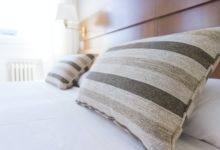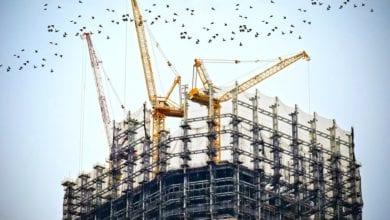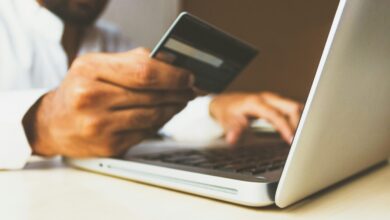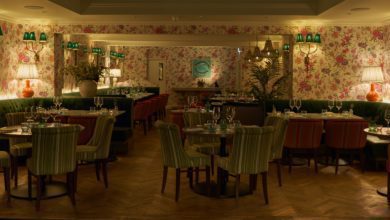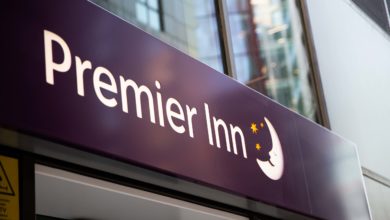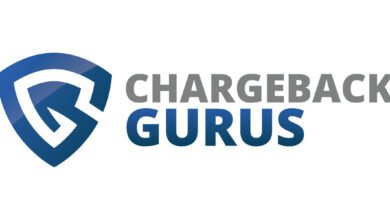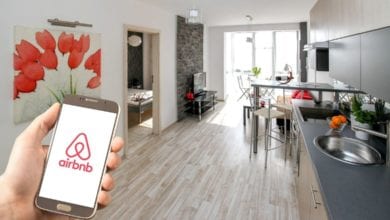Come rain or shine: Post-lockdown life in the Sunshine State
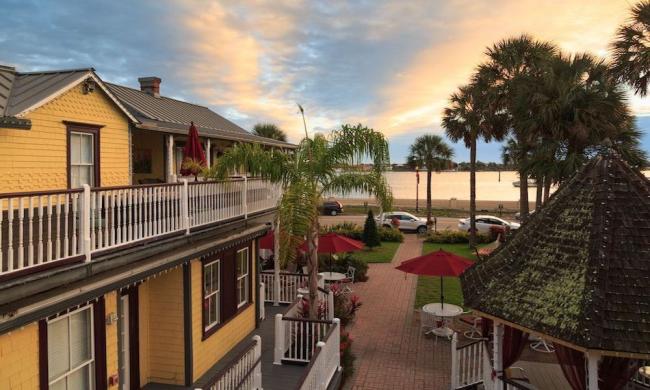
Floridians were recently greeted with the proverbial light at the end of the tunnel following news that a state-wide easing of the lockdown was imminent. Life in the Sunshine State had first ground to a halt on 1 April, as it entered lockdown and joined ranks with states and nations across the globe whilst corona continued to sweep the world.
But only last week, Governor DeSantis turned many a head after announcing ‘Phase One’ of a radical reopening. In an effort to once again turn the cogs of its economy, the state confirmed that certain facilities could open their doors once more. For a place whose economy depends so much on tourism – and hotels and hospitality at the forefront, this move has been seen as crucial. We reached out to some Floridian hoteliers in order to hear more about their wildly differing experiences of lockdown, and what their lives and livelihoods will look like going forward.
Simone Kuska runs the large, resort-like Florida Hotel and Conference Center in Orlando, whilst Sandy Wieber runs the quaint, historic Bayfront Marin House in St. Augustine.
Kuska says her experience of Covid-19 has been notably different to many hoteliers, for the hotel she runs continued to operate all the way through lockdown. Her site has contracts with various airlines, and is used a resting location for cabin crew members passing through between journeys. “That is why we have stayed open”, says Kuska, “because they would have no other place to go otherwise.” But even with such layovers, the hotel’s occupancy has hovered around the 30-room mark, in contrast with the 511 rooms once filled with guests pre-Covid.
Following the governor’s announcement though, Kuska no longer has to limit her guests to cabin crew. But does she feel prepared to welcome back other guests as the curtain begins to lift? “Yes”, she says. “We’ve attended enough webinars that the county has put on, that the city has put on, that our local Visit Orlando put on, and obviously the CDC [The Center for Disease Control and Prevention] has been a brilliant help, too. They’ve all been great at telling us what we need to do in order to be safe and provide safety for our guests and employees.”
Like Kuska, Wiebar also utilised the ample preparation and guidance provided to hoteliers in the runup to reopening. Her bayfront bed and breakfast shut its doors when lockdown was first announced, but Wiebar is hoping to start welcoming guests as early as next week. “We just wanted this time to finish training everyone”, she says, “and obviously finish all the cleaning procedures, and go through mask protocol and usage with the whole team.”
And does she too feel like hoteliers have been given the right guidelines by authorities when embarking on the reopening process? “The one thing that I think has been really surprising, and really amazing, is the amount of information that we’ve been getting on this”, she says.
“The sheer amount of information and webinars that we had access to was incredible, and this was not just information coming from the States. Booking.com and Tripadvisor have had loads of international experts speaking to us about the right procedures going forward, and our state hotel association has done a great job sending out protocols that people can use as a template.”
The training and guidelines have given Wiebar a sense of confidence going forward. “Now, when I’m talking to my staff and training them, and they ask me a question, I feel like an expert”, she laughs. “I’m not an epidemiologist, but I sure do know a lot about cleaning now. So I can tell my staff how long things last on different surfaces, and how to best protect everyone. And the fact we have access to all that information has made them comfortable, too.”
What exactly does the guidance mean for their day-to-day operations going forward? “We basically have very few interactions with our guests now”, says Kuska. “They get the key at the desk, but everything is now as contact-free as possible. And a lot of little things have changed. We’re now using plastic cups, for example, which is not necessarily environmentally friendly, but it is definitely more sterile right now.”
Wiebar has readied the site for post-lockdown trading: “The first thing that we’ve done, that our guests will notice immediately, is installed key-lift locks”, she says. “We had a number of them in the past on our beach properties, but going forward we’ll have key-lift locks on all of our doors. Someone will still be on hand in the office, but if a guest wants a completely contact-free check-in, we can now do that.”
She adds: “We’ve also spent a lot of time thinking about our lobby, which is quite small. So we’ve been trying to ask ourselves, ‘what things do people typically get from the lobby that we could move into their rooms, or move outside?’ Now, for example, we’re getting coffee-makers for every room, and we’re delivering our happy hour and breakfasts straight to rooms. We’re not taking them inside, but we now have tables next to each door, and we’ll put the trays there so that people can come out and get them themselves.”
Wiebar has also removed all decorative pillows, as well as in-room physical guidebooks and other printed materials, and is wrapping television remotes after they are cleaned. “We want everyone to know that everything inside their room has been freshly cleaned and disinfected”, she adds. Guests will also be greeted by a newly-installed, in-room electronic concierge – “think Alexa”, notes Wiebar – that can be used to ask for restaurant recommendations, or information about local attractions. It will even respond to such questions as ‘what’s the wifi code?’ or ‘can I get more towels?’. It is touch-free, of course, and just one more way that Wiebar can minimise contact for her guests.
The changes will undoubtedly extend beyond pillows and coffee and concierges. But for both hoteliers, how long do they imagine such routine-changing measures staying put? Kuska believes that everything will “ease up with time”, and predicts the state may even move into ‘Phase Two’ by mid-May, with a possible ‘Phase Three’ arriving in June. However, she expect that “the world as we know it will change dramatically for everyone. There will be far less contact, and there will be new technology that allows us to avoid contact with things for many years to come.
“We’re still looking into various radical things going forward, such as no keys from here on out. Maybe people can pre-check in and get an automated key, or just a lock where they can input a number. But I think this crisis will change the entire world, I really do. You know, shaking hands was just something we always did as people in hospitality. And now we can’t. This will change how we behave as human beings.”
As a fellow hotelier, Weibar agrees. “What I’m worried most about, and what I think my staff are worried most about, is that we went into hospitality because we love people. We have a lot of return guests here, and I mean guests who have returned 15 times, or 20 times. And when they come, not running over and giving them a hug, particularly knowing everything that we’ve all gone through, is going to be really, really difficult.”
And like Kuska, Weibar too believes the changes put in place will be here for the foreseeable future. “When staff and I have talked about reopening, I have stressed that some things will be permanent. The key-lift locks, we’re not going to switch those back, and it’s in fact a great convenience for many guests. But some things, such as delivering items or food to rooms, we’re looking at as temporary. Though I’m expecting it to be in place until the end of the year. But we can get comfortable with the cleaning, and we can get comfortable with creating a safe atmosphere, until you see people that you love. And then, what do you do?”
She takes a pause. “Some of it is science, and some of it is optics. I want my guests to feel comfortable. So even if the science catches up, and my guests aren’t comfortable for several months after that, we’re going to keep doing what we’re doing. We’re going to keep the exact protocols in place.”
The crisis has disrupted every hotelier’s business and many face a very tough road ahead to survive in the long term – the sector will likely feel aftershocks for years to come. But as professionals on the frontline of returning to service, do these Floridian hoteliers agree with the state’s decision to ease lockdown?
“You know, it depends on who you ask”, begins Kuska. “But here in Florida, we rely on tourism. We have so many people unemployed right now, and if we ever return to normalcy, we have to start somewhere. I think if people behave correctly, and wear masks and distance each other when they go to a restaurant or hotel or any establishment, then we’re going in the right direction, and we’re going in the new direction. It has to start somewhere.”
“It’s very nerve-wracking,” adds Wiebar. “You want to make sure that your staff are protected, and that your guests, of course, are safe. That’s all we can focus on now. We’re just trying to get up and running for that.”
And with tourism lying at the very heart of the state, what are their hopes for the sector reaching full recovery? “You know what”, begins Kuska, “I was around after 9/11, and I saw what happened. I was around after the recession and I saw what happened. It will take time, but as with anything, the human race will forget this when something else happens. You know, 15 years from now it will be in a history book and the next generation will just remember it as something that happened in history.”
She believes that full recovery will take a couple of years, nonetheless. “What’s going to have to happen here first, especially in Orlando, is parks will have to reopen”, she says. “There’s no reason for people to come to Orlando if neither the Disney parks or Universal are open to guests. And we predict that this will not happen until at least the end of May. And even then, it will mostly be the drive market and locals. I don’t think the international market will travel until July.”
Are they optimistic about the recovery of hotels, both in Florida and across the world? “Slowly, I am, yes”, says Kuska. “If you had asked me that four weeks ago I would have had a different answer, but I think it will now be a slow recuperation. And people will have to start feeling confident to say, ‘OK, I’m going to travel again, and I’m not going to get sick when I do this’. It will be slow, but it will happen.”
“I am optimistic,” says Wiebar, “because I’ve been overwhelmed by the number of reservations we’ve received in the last few days. Some of them are for quite soon, even in May, but a lot of them are for November, December and January. I think that people have gotten to a comfort level where they now feel comfortable planning months in advance.”
She notes that she has seen a difference in people’s confidence within the last week alone, and largely attributes this to the state’s unveiling of a ‘Phase One’ reopening. “I mean I think that just gave people a level of comfort to start planning things again. And for some people it will take longer than others. And you know, we’re going to do everything we can to make everyone feel comfortable. But a lot of that has to come from within for them.”
“If you think about it”, concludes Kuska, “the safest time to fly was right after 9/11. There has never been more security and safety. And just like now, hotels have never been cleaner, staff and guests have never been more protected and nobody has ever paid as much attention to the little details than they do now.”
She adds: “I think there will be great change, but I do believe that we are a nation that likes to travel, and especially with Disney World and Universal and what we offer in Orlando, people save a lifetime sometimes to come here. And I think they will continue doing it. They will want to return to some sense of normalcy.”
“You know, it’s like everything”, says Wiebar. “If you take care of your guests, the guests are going to take care of the industry. So all we can do is focus on the guests, on a micro-level. That’s all that I can affect. That’s all that I can prepare for.”


